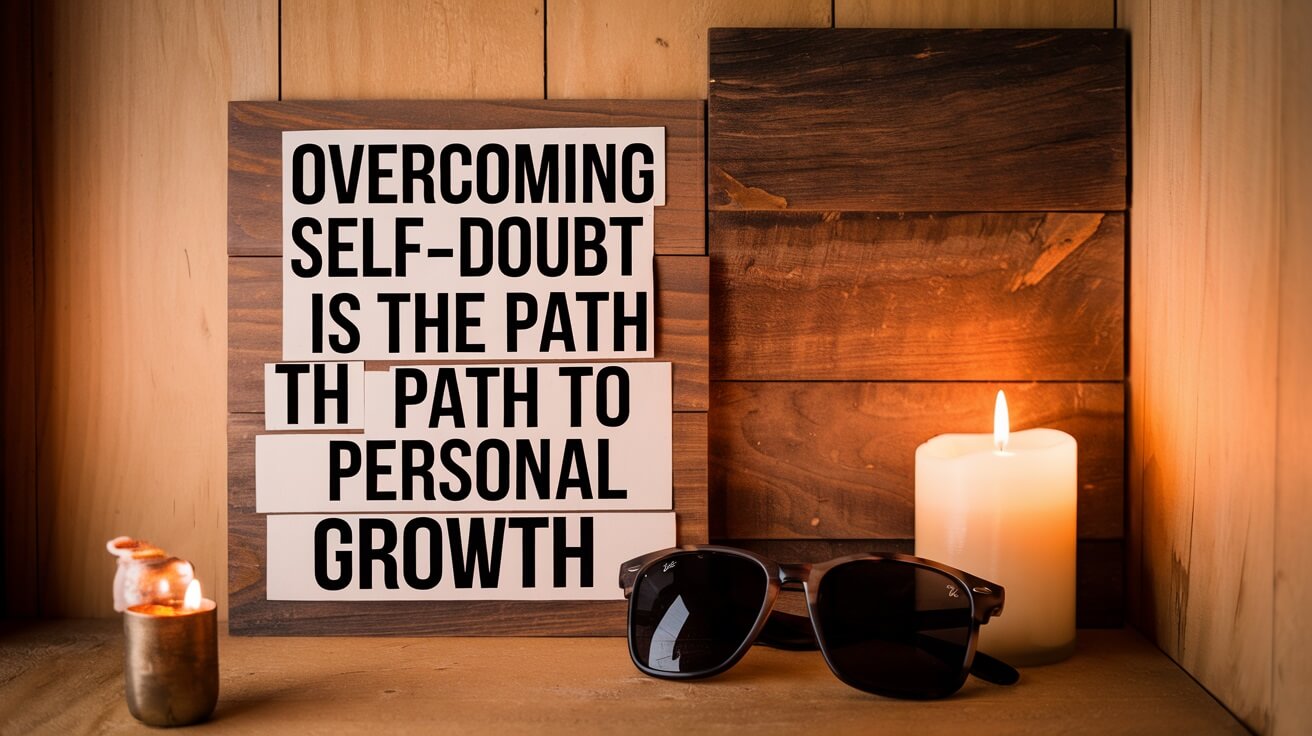
Personal Stories of Overcoming Self-Doubt with Growth
Have you ever wondered why moments of doubt creep in, even when you’ve achieved something great? Maybe you’ve hesitated to apply for a new job, start a project, or share your ideas, thinking, “I’m not good enough.” You’re not alone. Self-doubt is something we all face, and while it can feel isolating, it’s a shared experience across backgrounds, ages, and careers.
But here’s the truth: self-doubt doesn’t have to define you. It can be the starting point for significant personal growth. In this article, we’ll explore inspiring stories of people who overcame self-doubt and provide actionable strategies you can use to transform uncertainty into confidence. This guide is for anyone ready to grow, build resilience, and achieve their potential.
What Is Self-Doubt and Why Does It Hold Us Back?

Defining Self-Doubt
Self-doubt is the little voice in your mind that makes you second-guess your abilities, choices, or sense of self-worth. It’s not inherently wrong—sometimes, it drives reflection and self-awareness—but too much can lead to inaction and missed opportunities.
Examples of Self-Doubt:
-
Feeling unqualified for a role despite meeting the criteria.
-
Overthinking decisions out of fear of making mistakes.
-
Comparing your progress to others and feeling inadequate.
The Psychological Impact
Excessive self-doubt affects your mental health, relationships, and professional growth. A study by the American Psychological Association found that 70% of people experience imposter syndrome, a form of self-doubt where individuals feel like frauds despite their accomplishments.
How Self-Doubt Develops
-
Past Experiences: Negative feedback or failure can reinforce doubt.
-
Perfectionism: Unrealistic standards can make small mistakes feel like failures.
-
Comparison: Social media and societal expectations amplify feelings of inadequacy.
The Cost of Self-Doubt
When self-doubt isn’t addressed, it can hold you back in many ways:
-
Avoiding opportunities due to fear of failure.
-
Overworking to prove yourself leads to burnout.
-
Staying in your comfort zone and missing growth opportunities.
Personal Stories of Overcoming Self-Doubt

1. Maria’s Story: Turning Rejection into Growth
Maria loved writing but faced numerous rejections when submitting her stories to publishers. Each rejection made her question whether she was good enough to be an author. Instead of giving up, she sought feedback, improved her craft, and decided to self-publish. Her first book became a bestseller; today, she’s a celebrated author.
Lesson Learned: Rejection isn’t the end. It’s an opportunity to improve and grow.
2. Raj’s Story: Tackling Imposter Syndrome
Raj landed a job at a prestigious tech company but felt out of place among his talented peers. He constantly worried, “What if they realize I’m not as smart as they think?” With Mentorship and practice, Raj began focusing on his unique strengths rather than comparing himself to others. He soon led a successful project that earned him a promotion.
Lesson Learned: Mentorship and self-reflection can turn self-doubt into self-belief.
3. Samantha’s Story: Small Steps, Big Results
A single mother, Samantha wanted to return to school for a degree but doubted her ability to juggle work, parenting, and studies. She started by taking one class at a time, building confidence with each step. Four years later, she graduated with honors.
Lesson Learned: Small, consistent efforts lead to significant achievements.
Practical Strategies to Overcome Self-Doubt
1. Build a Growth Mindset
Dr. Carol Dweck introduced the idea of a "growth mindset," emphasizing that skills and abilities can be enhanced through dedication, effort, and a commitment to learning. People with a growth mindset see challenges as chances to learn and grow rather than perceiving them as obstacles or threats.
Steps to Develop a Growth Mindset:
-
Reframe negative thoughts. Instead of saying, “I can’t do this,” try, “I can learn how to do this.”
-
Celebrate progress, not just outcomes.
-
Embrace mistakes as learning opportunities.
2. Use Confidence-Boosting Tools
Confidence doesn’t come overnight, but simple tools can help.
Techniques for Building Confidence:
-
Journaling: Reflect on past successes to remind yourself of your capabilities.
-
Affirmations: Replace self-critical thoughts with positive affirmations like, “I am capable of handling challenges.”
-
Visualization: Picture yourself succeeding in challenging situations.
3. Seek Support
Sometimes, self-doubt is too big to handle alone. Support from mentors, friends, or counselors can make all the difference.
-
Why Mentorship Works: A Harvard Business Review study found that Mentorship increases professional confidence by 40%.
-
Practical Tip: Reach out to someone you admire and ask for guidance. Most people are happy to share their experiences and advice.
4. Take Action, Even If You’re Unsure
Overthinking often worsens self-doubt. Even when uncertain, taking small steps builds confidence over time.
Example:
If you’re nervous about public speaking, start by presenting in front of a small group. Each step will prepare you for more significant challenges.
The Role of Growth in Overcoming Self-Doubt

1. Small Wins Create Momentum
Small accomplishments add up over time. Each win builds your confidence and reduces self-doubt.
-
Example: Completing a single workout when you don’t feel motivated can lead to a habit of regular exercise.
2. Embrace Failure as a Teacher
Failure isn’t a reflection of your worth; it’s feedback for improvement.
-
Inspiration: Thomas Edison is well known for his optimistic perspective. Once, he stated, "I haven’t failed—I’ve simply discovered 10,000 methods that don’t work."
-
Actionable Tip: After a setback, identify one thing you learned and one way to try again.
Key Takeaways from Personal Stories
What We Can Learn
-
Rejection is part of the process, not the end.
-
Mentorship and support systems are invaluable.
-
Small, consistent actions lead to significant growth.
How to Apply These Lessons
-
Start with small, manageable goals.
-
Reflect on your progress regularly.
-
Choose to be around people who uplift you and inspire your growth.
FAQs About Overcoming Self-Doubt
1. Can self-doubt ever be beneficial?
Yes, self-doubt encourages reflection and self-awareness. The key is not letting it paralyze you.
2. What’s the first step to overcoming self-doubt?
Start by identifying your strengths and reframing negative thoughts.
3. How does self-doubt affect professional growth?
It can limit opportunities by discouraging risk-taking. Addressing it can unlock potential.
4. What tools can I use to overcome self-doubt?
Journaling, affirmations, and visualization are powerful tools to shift your mindset.
5. How do others overcome self-doubt?
People overcome self-doubt by taking small steps, seeking Mentorship, and celebrating progress.
Conclusion: Transform Doubt into Growth
Self-doubt is a challenge, but it’s also an opportunity for transformation. You can turn uncertainty into strength by adopting a growth mindset, using confidence-building tools, seeking support, and celebrating small wins.
Take one step today—whether it’s journaling about a recent success, reaching out to a mentor, or reframing a negative thought. Growth starts with believing in yourself, even when it feels hard.
"Remember, the only person standing in the way of your growth is you. Choose to move forward, one step at a time."
Personal Development




